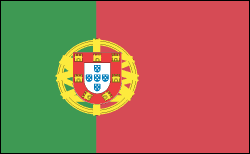Portugal History


The End of the Monarchy
The corrupt King Carlos, who ascended the throne in 1889, made João Franco the prime minister with dictatorial power in 1906. In 1908, Carlos and his heir were shot dead on the streets of Lisbon. The new king, Manoel II, was driven from the throne in the revolution of 1910, and Portugal became a French-style republic. Traditionally friendly to Britain, Portugal fought in World War I on the Allied side in Africa as well as on the Western Front. Weak postwar governments and a revolution in 1926 brought Antonio de Oliveira Salazar to power. As minister of finance (1928–1940) and prime minister (1932–1968), Salazar ruled Portugal as a virtual dictator. He kept Portugal neutral in World War II but gave the Allies naval and air bases after 1943. Portugal joined NATO as a founding member in 1949 but did not gain admission to the United Nations until 1955.
Portugal's foreign and colonial policies met with increasing difficulty both at home and abroad beginning in the 1950s. In fact, the bloodiest and most protracted wars against colonialism in Africa were fought against the Portuguese. Portugal lost the tiny remnants of its Indian empire—Goa, Daman, and Diu—to Indian military occupation in 1961, the year an insurrection broke out in Angola. For the next 13 years, Salazar, who died in 1970, and his successor, Marcello Caetano, fought independence movements amid growing world criticism. Leftists in the armed forces, weary of a losing battle, launched a successful revolution on April 25, 1974. After the 1974 revolution, the new military junta gave up its territories, beginning with Portuguese Guinea in Sept. 1974, which became the Republic of Guinea-Bissau. The decolonization of the Cape Verde Islands and Mozambique was effected in July 1975. Angola achieved independence later that same year, thus ending a colonial involvement on that continent that had begun in 1415. Full-scale international civil war, however, followed Portugal's departure from Angola, and Indonesia forcibly annexed independent East Timor. Also in 1975, the government nationalized banking, transportation, heavy industries, and the media. Portugal continued to experience social, economic, and political upheavals for the next decade.







